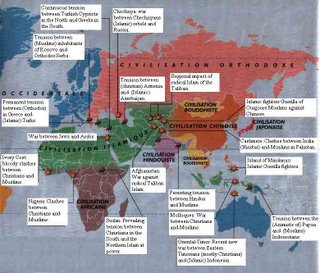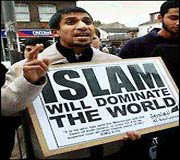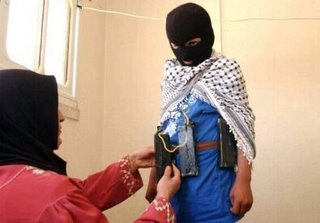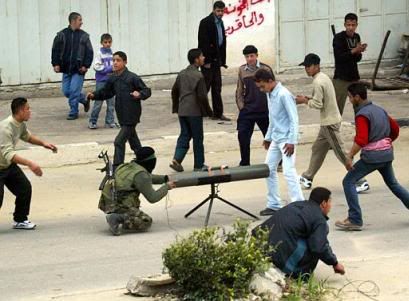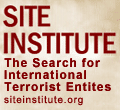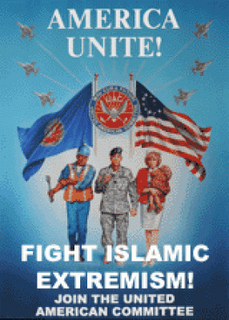Sunday, July 03, 2011
The bloody: Hezbollah - Iran - Syria/Alawite - Hamas axis
Syria Crisis Offers U.S. Opportunity to Break Axis with Iran ...
www.cnsnews.com › News - 24 Jun 2011 – Satloff was referring to the longstanding alliance between Shi'ite Iran and Alawite-ruled, Sunni-majority Syria, the Hezbollah and Hamas ...
http://www.cnsnews.com/news/article/syria-crisis-offers-us-opportunity-break
Netanyahu: Gaza Blockade, Stopping Weapons Ships is Mandatory ...
17 Mar 2011
This is the axis of terrorism: Iran, Syria, Hezbollah, Hamas and the other terrorist organizations. This is the axis of terrorism in our ...
http://www.israelnationalnews.com/News/News.aspx/142950
How Syria's Uprising Threatens Hizbullah - Randa Slim (Foreign Policy - May 3, 2011)
The popular uprisings in Syria represent the most serious challenge to Hizbullah since the 2006 war with Israel.
A regime change in Syria would threaten a major arms supply route to Hizbullah; deny the Iran-Syria-Hizbullah-Hamas axis its Arab linchpin; weaken Hizbullah's deterrence capacities vis-a-vis Israel; and deny Hizbullah leaders and their families a safe haven when they feel threatened by Israel, as was the case in 2006.
In a recent round of interviews I conducted with Hizbullah officials in Beirut, all those I spoke to agreed that a regime change in Syria would not occur easily or peacefully.
So far, Hizbullah officials believe that Bashar al-Assad will survive.
http://mideast.foreignpolicy.com/posts/2011/05/03/hezbollah_s_most_serious_challenge
---
More of: Alawites-Hezbollah-Iran-Syria bloodshed in Lebanon
At least 6 people are killed in sectarian clashes in Lebanon - Panorama.am
14:37 18/06/2011
Gunmen from Sunni Bab al-Tabbaneh district and Alawite neighborhood of Jabal Mohsen, Tripoli, Lebanon have clashed on Friday, "Radio Liberty" reports.
According to the source, at least 6 people are recorded to be killed in the aftermath of severe clashes.
Residents from the two districts have clashed intermittently in recent years, but Friday's incident came amid heightened tension over the widening popular uprising against Syrian President Bashar Assad. Jabal Mohsen is the stronghold of the pro-Syria Arab Democratic Party, led by Ali Eid.
http://www.panorama.am/en/society/2011/06/18/libanan/
Sectarian Clashes Erupt in North Lebanon - Al-Arabiya
http://english.alarabiya.net/articles/2011/06/18/153829.html
Child killed in renewed clashes in north Lebanon - Ya Libnan
http://www.yalibnan.com/2011/06/17/child-killed-in-renewed-clashes-in-north-lebanon/
Kabbara says Assad's "thugs" targeted Tripoli's Bab al-Tabbaneh
NOW LEBANON - Jun 22, 2011
Future Bloc MP Mohammad Kabbara said on Wednesday that Friday's Tripoli clashes are directly linked to current Syrian events. Syrian President Bashar al-Assad's "Shabeeha" (thugs) attacked the rally held in Bab al-Tabbaneh in support of anti-regime ...
http://www.nowlebanon.com/NewsArticleDetails.aspx?ID=284546
Seven people charged in northern Lebanon clashes Ya Libnan
http://www.yalibnan.com/2011/06/21/seven-people-charged-in-northern-lebanon-clashes/
Hezbollah weapons used in north Lebanon clashes, report Ya Libnan
June 20, 2011
March 14 MP Hadi Hobeich said on Monday that weapons backed by Hezbollah were used in the clashes that broke out on Friday in the city of Tripoli in northern Lebanon
"The data points toward Hezbollah-backed arms that were distributed in Tripoli," the MP told the Voice of Lebanon
In a reference to Hezbollah, Hobeich said that "there is a party that is armed and that is distributing weapons to everyone."
"We only benefit by having security across the country," he added, voicing hope that the newly formed Lebanese cabinet will work on "disarming all Lebanese, including Hezbollah."
He said that only the Lebanese government should have the authority to use weapons.
Armed clashes erupted in Tripoli on Friday following a rally in support of Syrian protesters. The military official of the Hezbollah and Syrian backed Arab Democratic Party, Ali Fares was killed and 6 others including one army soldier and a seven year old child. At least 59 others were reportedly injured and some are in serious condition .
Many analysts questioned why the Alawite party should have a military official.
Jabal Mohsen ( home of the Arab Democratic Party) and Bab al-Tabbaneh areas have been in recent years the scene of intense clashes between Sunni supporters of Lebanon's former PM Saad Hariri and Alawites who are loyal to the Hezbollah-led coalition backed by Iran and Syria.
http://www.yalibnan.com/2011/06/20/hezbollah-weapons-used-in-north-lebanon-clashes-report/
Why Hezbollah Had a Really Bad Week David Schenker July 1, 2011 12:00 am
Why America Should Be Hoping Bashar Assad Gets Overthrown Meet the Women of Hezbollah Back in 2006, the Lebanese Shiite militia Hezbollah was riding high. Having fought the Israeli army to a standstill, the organization's leader Hassan Nasrallah declared "divine victory." The war was a public relations coup for the militia, which emerged from the campaign as the most favorable personification of Shiism in the largely Sunni Muslim world. So impressive was the alleged victory that the campaign sparked a widely reported trend of conversion to Shiite Islam in the region. But if 2006 was a divine victory, this week's Special Tribunal on Lebanon (STL) indictments of four Hezbollah officials and affiliates in connection to the February 2005 assassination of former Lebanese premier Rafiq Hariri, may prove a divine defeat.
While the first reports of a Hezbollah role in the assassination of Hariri surfaced some two years ago, the formal announcement of the indictments will likely serve as an exclamation point to a longer process of depreciation in the group's reputation that started in 2008, when the organization invaded and occupied Beirut, turning the weapons of "the resistance" on the Lebanese people. That depreciation continued through 2009, when the organization's chief financier was arrested in a Bernie Madoff-like Ponzi scheme. More recently, in an ironic twist, Hezbollah—which at one time was known as the "Party of the Oppressed"—has emerged as the strongest regional backer of Syria's murderous Assad regime. Straining credulity, Nasrallah himself has now given two speeches vouching for Assad's pro-reform bona fides.
Now, for an organization that has long described itself as "the Resistance" to Israel, the revelation that it also specializes in killing Sunni Muslims will, at a minimum, be problematic. Although Nasrallah has spent the better part of the past two years trying to discredit the tribunal, few in the largely Sunni Muslim Middle East will question the court's accusation that the militia played a central role in the murder of Hariri, the leader of Lebanon's Sunni community.
Indeed, the Arab Spring has contributed to a spike in Sunni-Shiite tensions. Pro-democracy demonstrations in Bahrain, for example, were largely seen by Gulf Arabs as an attempt by the Shiite theocracy in Iran to subvert the Sunni monarchy. In Syria, meanwhile, the rallying cry of the largely Sunni Muslim opposition to the Alawite Assad regime has been "No to Iran, No to Hezbollah!" Given these sentiments—and despite the residual respect for the accomplishments of the organization—the indictment will likely be seen through a largely sectarian prism.
Moreover, the accusations are bound to foment discontent within Nasrallah's organization, and potentially result in some diminished support for the militia in Lebanon. While they will not come as a shock to anyone, of course, they will reopen old wounds, enraging Lebanon's Sunni Muslims and, perhaps, disillusioning a few of Hezbollah's Christian allies. At the same time, some Shiites—Hezbollahis and the organization's constituents—will likely view the indictments as a liability and may seek to provoke another conflict with Israel, a la 2006, to distract attention from the tribunal. But regardless of Nasrallah's bravado, Shiites in south Lebanon do not crave another costly war with Israel or a return to civil war at home.
To be sure, notwithstanding the indictment of four of its lieutenants, Hezbollah will remain firmly in control of Lebanon, both politically and militarily. But the organization's stature in the wider Muslim world will be irrevocably diminished and the change in status of this once seemingly holy Shiite organization will likewise further undermine the position of Iran and Syria in the region. It could also undermine Hezbollah in the eyes of Europe, where the militia has long benefitted from the Continent's inexplicably tolerant view of the group's "political" wing. Indeed, given the European Union's expressed disgust with the ongoing atrocities perpetrated by the Assad regime and its growing frustration with the clerical regime in Tehran, the EU might be inclined to shift its views and finally lump Hezbollah in with these irredeemable regimes.
Until then, despite United Nations Resolutions calling for Lebanon to render the indicted individuals, it is all but certain Hezbollah won't cooperate with the Special Tribunal. But while the trigger men themselves may slip the noose and be tried by the STL in absentia, the Shiite militia and its sponsors that ordered the Hariri hit will pay a steep price. Indeed, there may or may not ultimately be a conviction in The Hague, but in the Middle East court of public opinion, the verdict on Hezbollah will be guilty.
David Schenker is Aufzien Fellow and director of the Program on Arab Politics at the Washington Institute for Near East Policy.
http://www.tnr.com/article/world/91167/lebanon-tribunal-hariri-hezbollah
Labels: arab apartheid, arab spring, Hamas, Hezbollah, Lebanon, Syria

